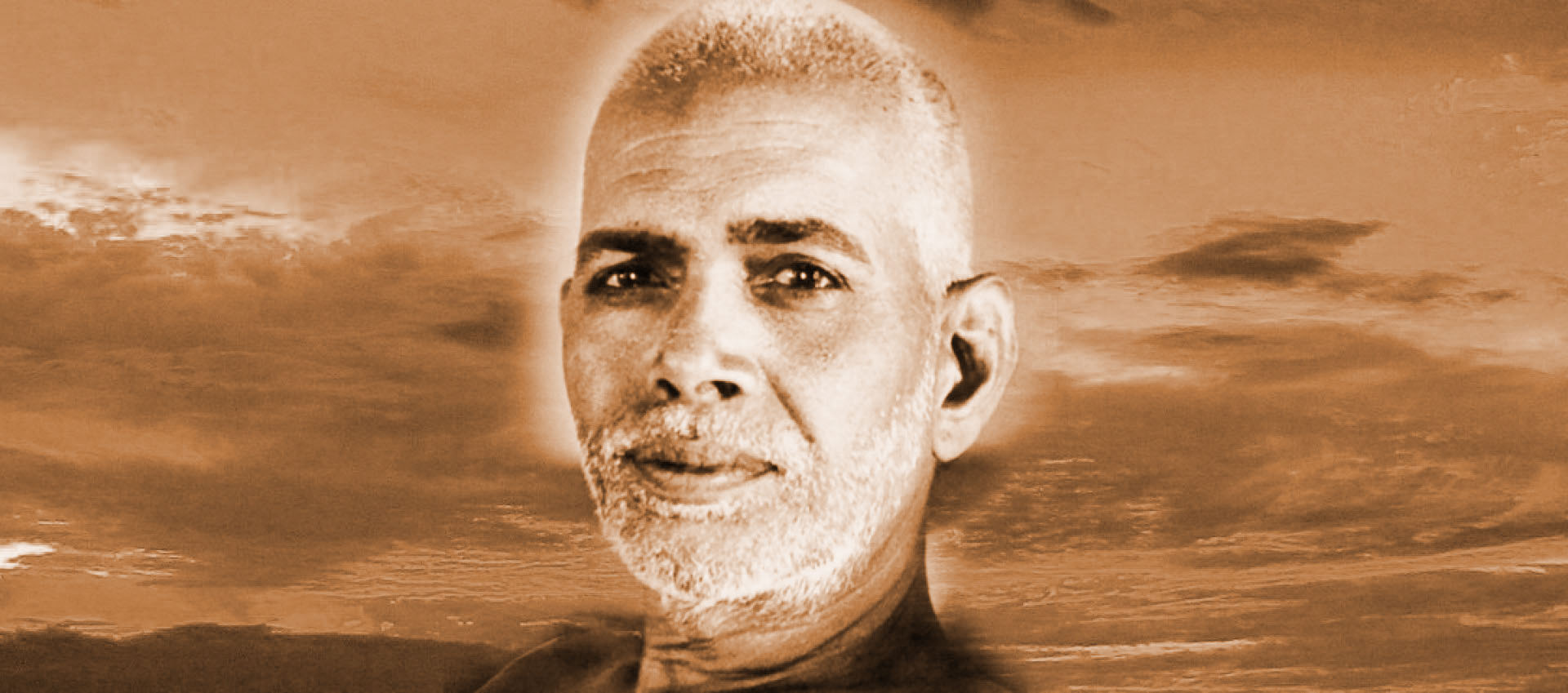
What is Meditation? How to do it (4)
~~~~~~~~
Talk 80.
D.: Is Dhyana (meditation) necessary?
M.: The Upanishads say that even the Earth is in eternal Dhyana.
D.: How does Karma, good actions, help it? Will it not add to the already heavy load to be removed?
M.: Karma done unselfishly purifies the mind and helps to fix it in meditation.
D.: What if one meditates incessantly without Karma?
M.: Try and see. The Vasanas (mental tendencies) will not let you do it. Dhyana comes only step by step with the gradual weakening of the Vasanas by the Grace of the Master.
~~~~~~~~
Talk 377.
A visitor: A man is said to be divine. Why then does he have regrets?
M.: Divinity refers to the essential nature. The regrets are of Prakriti (the prime material energy of which all matter is composed).
D.: How is one to overcome regrets?
M.: By realizing the Divinity in him.
D.: How?
M.: By practice.
D.: What kind of practice?
M.: Meditation.
D.: Mind is not steady while meditating.
M.: It will be all right by practice.
D.: How is the mind to be steadied?
M.: By strengthening it.
D.: How to strengthen it?
M.: It grows strong by satsanga (the company of the wise).
D.: Shall we add prayers, etc.?
M.: Yes.
~~~~~~~~
Talk 172.
A visitor: What is the difference between meditation (Dhyana) and investigation (Vichara)?
M.: Both amount to the same. Those unfit for investigation must practise meditation. In this practice the aspirant forgetting himself meditates ‘I am Brahman’ or ‘I am Siva’; thus he continues to hold to Brahman or Siva; this will ultimately end on the residual Being as Brahman or Siva which he will realize to be Pure Being, i.e. the Self.
He who engages in investigation starts holding on to himself, asks ‘Who am I?’ and the Self becomes clear to him.
~~~~~~~~
Talk 238.
D.: How to know the Self?
M.: See what the Self is. What you consider to be the Self, is really either the mind or the intellect or the ‘I-thought’. The other thoughts arise only after the ‘I-thought’. So hold on to it. The others will vanish leaving the Self as the residuum.
D.: The difficulty lies in reaching it.
M.: There is no reaching it at all because it is eternal, here and now.
If the Self were to be gained anew, it would not be permanent.
~~~~~~~~
Talk 322.
A visitor asked: What should we do to make the mind still?
M.: First let the mind be caught hold of and brought here: then we shall consider ways and means of stilling it.
D.: I meant to say that it is always changing – even when we do our Japa (chanting).
M.: Japa is meant only for stilling the mind.
D.: What Japa is good for it?
M.: Anything suitable, such as Gayatri.
D.: Will Gayatri do?
M.: Can anything excel it? Only those who cannot do it look for others. It contains the whole range of truth in it. Chanting (Japa) will lead to Dhyana (meditation) and it is the means for realizing the Self.
D.: Will half an hour a day do for it?
M.: It must be done always, or as long as you can.
~~~~~~~~
Talk 390.
D.: What shall I meditate upon?
M.: Meditation requires an object to meditate upon, whereas there is only the subject without the object in Vichara. Meditation differs from Vichara in this way.
D.: Is not Dhyana (Meditation), one of the efficient processes for Realization?
M.: Dhyana is concentration on an object. It fulfills the purpose of keeping away diverse thoughts and fixing the mind on a single thought, which must also disappear before Realization. But Realization is nothing new to be acquired. It is already there, but obstructed by a screen of thoughts.
All our attempts are directed for lifting this screen and then Realization is revealed.
If a true seeker is advised to meditate, many may go away satisfied with the advice. But someone among them may turn round and ask, “Who am I to meditate on an object?” Such a one must be told to find the Self. That is the finality. That is Vichara.
D.: Will Vichara alone do in the absence of meditation?
M.: Vichara is the process and the goal also. ‘I AM’ is the goal and the final Reality. To hold to it with effort is Vichara. When spontaneous and natural it is Realization.
~~~~~~~~
Talk 319.
D.: Impurities of limitation, ignorance and desire (anava, mayika, and kamya) place obstacles in the way of meditation. How to conquer them?
M.: Not to be swayed by them.
D.: Grace is necessary.
M.: Yes, Grace is both the beginning and the end. Introversion is due to Grace: Perseverance is Grace; and Realization is Grace. That is the reason for the statement: Mamekam saranam vraja (only surrender to Me). If one has entirely surrendered oneself is there any part left to ask for Grace? He is swallowed up by Grace.
D.: The obstacles are powerful and obstruct meditation.
M.: If a Higher Power is recognised and surrendered to, how will they obstruct you? If you say “They are powerful,” the source of their Power must be held so that they do not obstruct you.
~~~~~~~~
Talk 223.
D.: Why does the mind not sink into the Heart even while meditating?
M.: A floating body does not readily sink unless some means are adopted for making it do so. Breath-control makes the mind quiet. The mind must be alert and meditation pursued unremittingly even when it is at peace. Then it sinks into the Heart. Or the floating body might be loaded with weights and made to sink. So also association with the wise will make the mind sink into the Heart.
Such association is both mental and physical. The extremely visible being (of the Guru) pushes the mind inward. He is also in the Heart of the seeker and so he draws the latter’s inward-bent mind into the Heart.
This question is asked only when the man begins to meditate and finds it difficult. Let him practise breath-control just a little and the mind will be purified. It does not now sink into the Heart because the latent tendencies stand as obstacles. They are removed by breath-control or association with the wise. In fact the mind is always in the Heart. But it is restive and moves about on account of latent tendencies. When the tendencies are made ineffective it will be restful and at peace.
By breath-control the mind will be only temporarily quiet, because the tendencies are still there. If the mind is transformed into the Self it will no longer give trouble. That is done by meditation.

